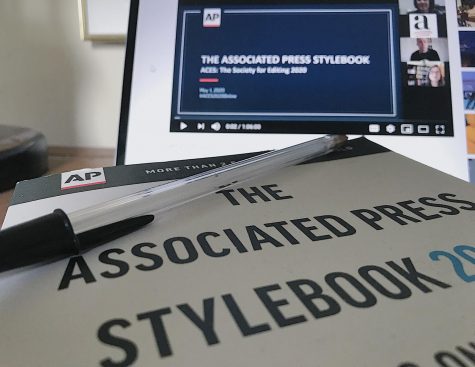Silence Proves Scorsese Can Do No Wrong

Andrew Garfield gives a powerful performance as Fr. Rodrigues in Silence.
February 15, 2017
By Elizabeth Smislova

As a person who loves to re-watch movies until I can practically recite them, saying I will never watch Martin Scorsese’s new masterpiece Silence again means a lot. However, I found it a deeply moving experience to watch, and I believe everyone should do so as a duty to themselves and their relationship to any higher being they acknowledge.
I left the theater after watching the film mentally and almost physically exhausted—it is an almost three hour string of the most difficult trials imaginable. Scorsese created Silence as the culmination of the sizable collection of renowned movies he has already directed.
The film is based on the novel of the same name by the Japanese author Shusaku Endo, and follows the journey of the Portuguese Jesuit priest Sebastian Rodrigues (Andrew Garfield) through 17th century Japan. Rodrigues, along with fellow Jesuit Francisco Garupe (Adam Driver), enters the incredibly dangerous country that has outlawed Catholicism in search of their mentor Jesuit Father Cristóvão Ferreira (Liam Neeson). The two young priests heard rumors that their beloved Ferreira was lost in Japan, had denounced the faith and taken a Japanese wife; in disbelief of these speculations, they take it upon themselves to find him.
Needless to say, the two are not met with champagne and balloons in Japan. They do find, however, Japanese peasants who have been practicing their Catholic faith, albeit without a priest, in complete secrecy. The faith of these suppressed Catholics is astounding. As a Catholic myself, and one who considers herself utterly in love with her faith, seeing the unbelievable risks they took to even hold a small hand-carved cross was extremely moving.
The Japanese Inquisitor becomes the antagonist of the film, and one of the worst I have ever seen. He brutally punishes those who he finds practicing Catholicism and who will not step on a plaque of the Virgin Mary. These executions are savage, violent and are very hard to stomach. Saying Silence is an uncomfortable movie to watch would be an extreme understatement.
The film placed me in a situation, through Fr. Rodrigues, where literally everything I thought I knew to be true was placed in question. The title of the film refers to the silence of God in response to the most difficult questions imaginable—a lack of sound or acknowledgement so unbearable even the most devout of believers would undoubtedly begin to doubt. Silence challenges the idea of missions and the notion that Catholicism can flourish everywhere and in everyone.
When the credits began and the lights of the theater came on and I realized my life was not in danger as a Catholic in Japan, I realized I really did not fully understand any of the three hour movie. It is very complicated and difficult, and definitely a film that should be talked and talked about with other people. Probably the only remotely enjoyable part of Silence is the swoon-worthy Andrew Garfield, despite the fact that he plays an intensely religious Jesuit priest.
I did not necessarily enjoy Silence, but it made me genuinely think about my faith and how grateful I am to attend a Catholic, even Jesuit, school that constantly celebrates the religion I love so much. I never want to see Silence again, but I think every human person should see it. Everyone should see it and subsequently listen to the silence all around that, with reflection about the moving film, becomes louder than ever.









If you want a picture to show with your comment, go get a gravatar.